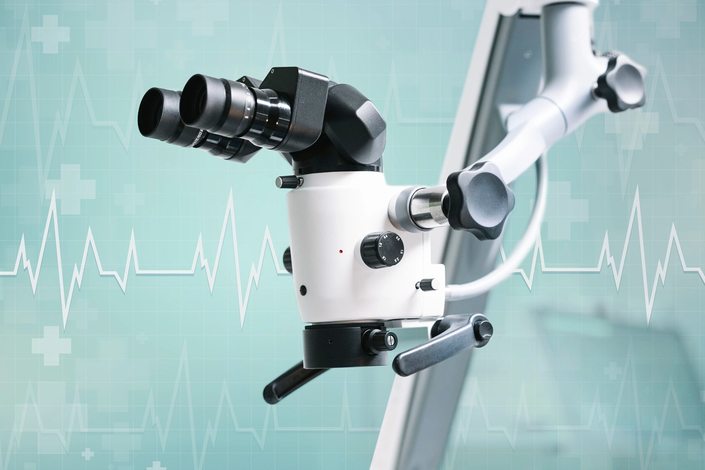Overview
We will explore the best practices and strategic approach for evaluating computer systems used in the conduct FDA-regulated activities and determining the level of potential risk, should they fail, on data integrity, process and product quality, and consumer/patient safety. We will walk through the System Development Life Cycle (SDLC) approach to validation, based on risk assessment, and will also discuss 21 CFR Part 11 and the importance of managing electronic records and signatures appropriately.
We will cover the approach for validating/qualifying infrastructure components to FDA-regulated systems, including cloud-based servers and Software-as-a-Service (SaaS) solutions. A different approach is required for auditing and performing Installation Qualification (IQ) for systems supported by these vendors.
We will also walk through the entire set of essential policies and procedures, as well as other supporting documentation and activities that must be developed and followed to ensure compliance. We will provide an overview of practices to prepare for an FDA inspection, and will also touch on the importance of auditing vendors of computer system hardware, software, tools and utilities, and services.
Finally, we will provide an overview of industry best practices, with a focus on data integrity and risk assessment, that can be leveraged to assist in all your GxP work.
Why Should You Attend
A critical element of any computer system implementation project is the infrastructure that supports it. This varies, including hardware and software, and must be a foundation that’s qualified and able to support a system in a validated state.
In this webinar, we’ll discuss on-premise servers and software, cloud-based services, and Software-as-a-Service (SaaS) solutions. There are specific things to watch out for to ensure you are properly supported and covered, including security, access control, incident reporting, change control, and maintenance of the system. Learning the best approach for different types of hardware and software will help you simplify your work. Rather than always doing things the way they’ve been done for decades, we’ll provide some thoughts and suggestions about how to leverage technology and the vendor’s work to make sure you’re doing things efficiently and effectively without risking quality or compliance.
Webinar Takeaway
- Learn how to identify “GxP” Systems
- Discuss the Computer System Validation (CSV) approach based on FDA requirements
- Learn about Computer Software Assurance (CSA) and how this approach may streamline your validation work
- Learn about cloud service and SaaS providers and the best approach for conducting a vendor audit and performing Installation Qualification (IQ) for validation
- Learn about the System Development Life Cycle (SDLC) approach to validation
- Discuss the best practices for documenting computer system validation efforts, including requirements, design, development, testing and operational maintenance procedures
- Understand how to maintain a system in a validated state through the system’s entire life cycle
- Learn how to assure the integrity of data that supports GxP work
- Discuss the importance of “GxP” documentation that complies with FDA requirements
- Learn about the policies and procedures needed to support your validation process and ongoing maintenance of your systems in a validated state
- Understand the key components of 21 CFR Part 11 compliance for electronic records and signatures
- Know the regulatory influences that lead to FDA’s current thinking at any given time
- Learn how to conduct a risk assessment on computer systems that will provide the basis for developing a validation rationale
- Understand the need to include an assessment of a computer system’s size, complexity, business criticality, GAMP 5 category and risk, should it fail, to develop a cohesive and comprehensive validation rationale
- Learn how to best prepare for an FDA inspection or audit of a GxP computer system
- Understand the importance of performing a thorough vendor audit to ensure oversight to the products and services they deliver
- Finally, understand the industry best practices that will enable you to optimize your approach to validation and compliance, based on risk assessment, to ensure data integrity is maintained throughout the entire data life cycle
- Q&A
Who Will Benefit
Personnel in the following roles will benefit:
- Information Technology Analysts
- Information Technology Developers and Testers
- Software Quality Assurance Professionals
- QC/QA Managers and Analysts
- Analytical Chemists
- Compliance and Audit Managers
- Laboratory Managers
- Automation Analysts
- Manufacturing Specialists and Managers
- Supply Chain Specialists and Managers
- Regulatory Affairs Specialists
- Regulatory Submissions Specialists
- Risk Management Professionals
- Clinical Data Analysts
- Clinical Data Managers
- Clinical Trial Sponsors
- Computer System Validation Specialists
- GMP Training Specialists
- Business Stakeholders/Subject Matter Experts
- Business System/Application Testers
- Vendors responsible for software development, testing and maintenance
- Vendors and consultants working in the life sciences industry who are involved in computer system implementation, validation and compliance

Faculty Carolyn Troiano
Award winning FDA Compliance Expert for Validation, 21 CFR Part 11 (Electronic Records/Signatures) and Data Integrity.
My experience includes 40+ years in IT/ Business, Marketing & Compliance leadership and management roles at a variety of Fortune 100 companies, across multiple industries.
My successes include building and managing teams and business units at multiple “greenfield” sites in the pharmaceutical, biotechnology and IT consulting industries, as well as in the public sector. I have weathered numerous layoffs, mergers and acquisitions, and demonstrated my very strong leadership skills in helping staff get through difficult times.
Ms. Troiano has specific expertise in Computer System Validation (CSV), 21 CFR Part 11, FDA’s Guidance on Electronic Records and Electronic Signatures (ER/ES), and Data Integrity. She received her MBA from Rutgers University and a BS in Toxicology from St. John’s University.



